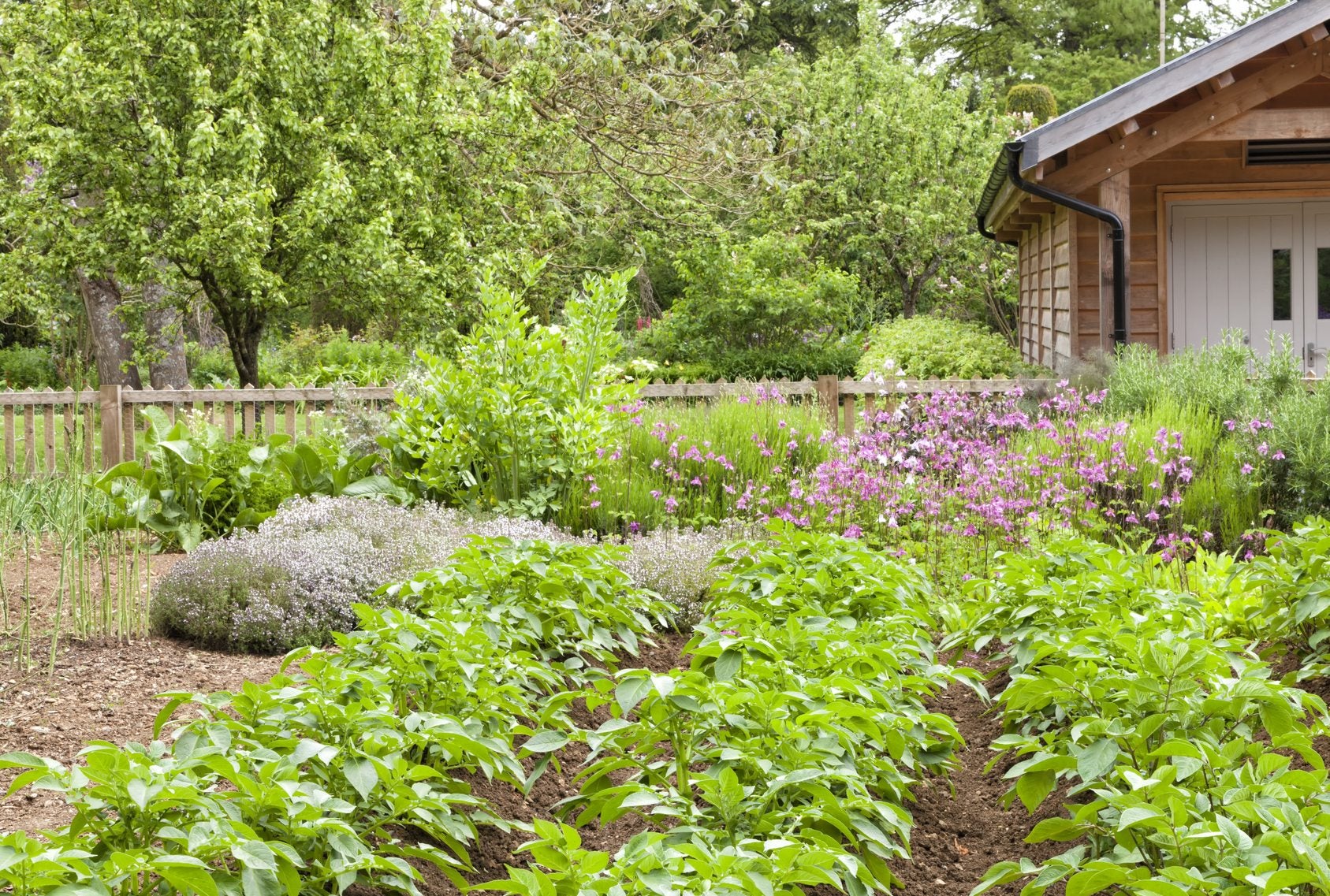
Potato Companion Plants: A Comprehensive Guide
Potatoes (Solanum tuberosum) are one of the most widely cultivated vegetables globally, known for their versatility and nutritional value. However, growing potatoes successfully can be enhanced through the practice of companion planting. This article explores the concept of companion planting, identifies the best and worst companion plants for potatoes, and provides detailed insights into how these relationships can benefit your garden.
What is Companion Planting?
Companion planting is an agricultural practice that involves growing different plants in proximity for mutual benefit. This technique can enhance growth, deter pests, and improve overall crop yield. The benefits of companion planting include:
- Pest Control: Certain plants can repel pests that threaten the health of neighboring plants.
- Nutrient Enhancement: Some companions can improve soil fertility, making nutrients more available to crops.
- Biodiversity: Diverse plantings can create a more balanced ecosystem, reducing the likelihood of disease and pest outbreaks.
- Space Optimization: Companion plants can maximize the use of garden space, allowing for more efficient planting.
Benefits of Companion Planting with Potatoes
Companion planting with potatoes offers several advantages:
- Pest Deterrence: Some companion plants can repel common pests that affect potatoes, such as the Colorado potato beetle.
- Soil Health: Leguminous plants, such as beans, can fix nitrogen in the soil, benefiting nitrogen-hungry potatoes.
- Improved Flavor: Certain herbs and flowers may enhance the flavor of potatoes when grown nearby.
- Maximized Space: Shallow-rooted companions can be planted alongside potatoes, utilizing garden space effectively.
- Disease Resistance: Some companions can help reduce the incidence of diseases that affect potatoes.
Best Companion Plants for Potatoes
Here’s a detailed list of the best companion plants for potatoes, categorized by type:
| Companion Plant Type | Companion Plants | Benefits |
|---|---|---|
| Vegetables | Beans, Corn, Cabbage, Lettuce, Peas, Radishes, Scallions, Spinach | Enhance growth, improve soil fertility, and deter pests. |
| Herbs | Basil, Chamomile, Thyme, Parsley | Attract beneficial insects and improve flavor. |
| Flowers | Marigold, Nasturtium, Petunia, Yarrow | Deter harmful pests and attract pollinators. |
Detailed Companion Plant Descriptions
- Beans (Phaseolus vulgaris): Beans are excellent companions for potatoes as they fix nitrogen in the soil, enhancing soil fertility. They also help deter pests like the Mexican bean beetle.
- Corn (Zea mays): Corn provides shade for potato plants, which can help maintain soil moisture. Additionally, it does not compete for nutrients with potatoes.
- Cabbage Family (Brassica oleracea): Members of the cabbage family, including broccoli and cauliflower, can be planted alongside potatoes. They do not compete for the same nutrients and can help deter pests.
- Lettuce (Lactuca sativa): Lettuce is a shallow-rooted plant that can be planted between potato rows, maximizing space and providing a quick harvest before potatoes are ready.
- Radishes (Raphanus sativus): Radishes can deter pests like the cucumber beetle and can be harvested early, allowing potatoes to grow without competition.
- Marigold (Tagetes spp.): Marigolds are known for their pest-repelling properties, particularly against nematodes and aphids. They also attract beneficial insects.
- Nasturtium (Tropaeolum majus): Nasturtiums can act as a trap crop, attracting aphids away from potatoes. They also add beauty to the garden.
- Basil (Ocimum basilicum): Basil is said to enhance the flavor of potatoes and can repel pests like whiteflies and mosquitoes.
- Chamomile (Matricaria chamomilla): Chamomile can improve the flavor of potatoes and attract beneficial insects that prey on pests.
Worst Companion Plants for Potatoes
While many plants can benefit potatoes, some should be avoided due to negative interactions. Here’s a list of the worst companion plants for potatoes:
| Companion Plant Type | Companion Plants | Reasons to Avoid |
|---|---|---|
| Nightshades | Tomatoes, Peppers, Eggplants | Share similar pests and diseases, increasing risk of blight. |
| Root Vegetables | Carrots, Onions, Garlic | Compete for nutrients and space, potentially stunting potato growth. |
| Others | Fennel, Cucumber, Pumpkin, Squash | Can attract pests or compete for resources. |
Detailed Descriptions of Negative Companions
- Tomatoes (Solanum lycopersicum): Both potatoes and tomatoes are members of the nightshade family and are susceptible to similar diseases, including blight. Planting them together can increase the risk of disease transmission.
- Onions (Allium cepa): There is conflicting advice about onions as companions. While some gardeners report success, others find that onions can stunt the growth of potatoes due to competition for nutrients.
- Fennel (Foeniculum vulgare): Fennel can inhibit the growth of many plants, including potatoes. Its allelopathic properties can hinder the development of nearby crops.
- Cucumbers (Cucumis sativus): Cucumbers can attract pests that also target potatoes, increasing the risk of infestations.
- Pumpkin (Cucurbita pepo): Like cucumbers, pumpkins can attract similar pests and compete for space and nutrients.
Practical Tips for Companion Planting with Potatoes
To successfully implement companion planting with potatoes, consider the following tips:
- Plan Your Garden Layout: Arrange your garden so that companion plants are strategically placed around potato plants, ensuring they do not compete for space or nutrients.
- Timing Matters: Consider planting early-season crops alongside potatoes. This way, they can be harvested before the potatoes need more space.
- Rotate Crops: Practice crop rotation by planting potatoes in different locations each year to prevent soil depletion and reduce disease risk.
- Monitor Plant Health: Keep an eye on the health of both your potatoes and their companions. If you notice any signs of stress or disease, adjust your planting strategy accordingly.
- Use Organic Practices: Emphasize organic gardening practices to enhance soil health and promote beneficial insect populations.
Conclusion
Companion planting is a valuable technique for enhancing potato cultivation. By selecting the right companion plants, gardeners can improve soil health, deter pests, and maximize yields. Understanding which plants work well with potatoes—and which do not—can lead to a more productive and resilient garden. As you plan your potato patch, consider incorporating beneficial companions to create a thriving ecosystem that supports healthy growth.
FAQ Section
- What are companion plants for potatoes?
- Companion plants for potatoes include beans, corn, cabbage, lettuce, and marigolds, which can enhance growth and deter pests.
- Why should I avoid planting nightshades with potatoes?
- Nightshades like tomatoes and peppers share similar pests and diseases, increasing the risk of blight and other issues.
- Can I plant onions with potatoes?
- Opinions vary on this; some gardeners find onions stunt potato growth, while others have success planting them together.
- What benefits do companion plants provide?
- Companion plants can improve soil fertility, deter pests, attract beneficial insects, and maximize garden space.
- How should I arrange my garden for companion planting?
- Plan your garden layout to ensure companion plants are strategically placed around potatoes without competing for space or nutrients.
- What are some good flowers to plant with potatoes?
- Marigolds and nasturtiums are excellent flower companions that can deter pests and attract beneficial insects.
- How does crop rotation benefit potato planting?
- Crop rotation prevents soil depletion and reduces the risk of disease by varying the types of crops grown in a specific area each year.
- What should I do if my companion plants show signs of stress?
- Monitor plant health and adjust your planting strategy if you notice stress or disease in either potatoes or their companions.
- Are there any herbs that benefit potatoes?
- Yes, herbs like basil, chamomile, and thyme can improve potato flavor and attract beneficial insects.
- Where can I find more information about companion planting?
- For more information, you can visit Wikipedia: Companion Planting.
By incorporating companion planting into your gardening practices, you can create a more vibrant and productive environment for your potatoes and other crops. Happy gardening!


